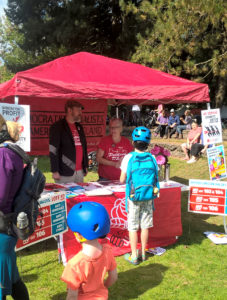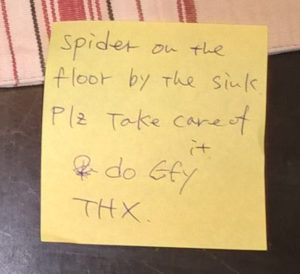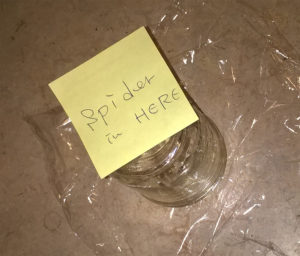What’s This Safe Play About?
 Safe spaces have invaded tabletop role-playing. I reject Paizo‘s “social contract” which pushes for a sensitivity that detracts from immersion.
Safe spaces have invaded tabletop role-playing. I reject Paizo‘s “social contract” which pushes for a sensitivity that detracts from immersion.
Players beware, characters are not safe in my game. With the filter of fiction as my perpetual disclaimer, I will offend with glee and great satisfaction.
Prepare with spells, gear, and wit. Just don’t forget, political correctness doesn’t exist within my fantasy.
I game master a virtual tabletop role-playing campaign on Roll20. It takes place in the same setting as my novels, a symbiotic relationship necessary given the constraints of my day-to-day life with work, family, and writing.
Paizo, keep your politics out of my game

I understand that the culture war is pervasive, but this doesn’t excuse the politicizing of Paizo’s Pathfinder 2.0 rule book playtest.
The following is copied from pages five and six of the text, with what triggers me highlighted in a bold purple:
Gaming is for all:
Whether you’re a player or a Game Master, participating in a tabletop roleplaying game involves an inherent social contract: everyone has gathered to have fun together, and the table is a safe space for everyone. Everyone has a right to play and enjoy Pathfinder regardless of their age, gender, race, religion, sexual orientation, or any other identities and life experiences. Pathfinder is for everyone, and Pathfinder games should be as safe, inclusive, and fun as possible for all.
This declaration of a “safe space” implies a right to not be offended. I respect efforts to cater to the sensitivities of players, but there is a difference between striving towards equality of acceptance and enforcing an equality of experience.
Players:
As a player, it is your responsibility to ensure that you are not creating or contributing to an environment that makes any other players feel uncomfortable or unwelcome, particularly if those players are members of minority or marginalized communities that haven’t always been welcome or represented in the larger gaming population. Thus, it’s important to consider your character concepts and roleplaying style and avoid any approach that could cause harm to another player. A character whose concept and mannerisms are racist tropes, for example, is exceptionally harmful and works against the goal of providing fun for all. A roleplaying style in which a player or character is constantly interrupting others or treating certain players or characters with condescension is similarly unacceptable.
This is where Paizo goes off the deep end into socialism and equality of outcome by conflating players and characters. Keep the culture war and victimhood culture out of the rule book. I play these games of fantasy to be brutal, cruel, heroic, and a fool. Don’t hold me accountable out-of-game for making fun of an elf’s ears or a dwarf’s height.
Continuing from the same page:
Furthermore, standards of respect don’t vanish simply because you’re playing a character in a fantasy game. For example, it’s never acceptable to refer to another person using an offensive term or a slur, and doing so “in character” is just as bad as doing so directly. If your character’s concept requires you act this way, that’s a good sign your concept is harmful, and you have a responsibility to change it.
If I refer to a player’s character in a disrespectful way, I expect that player to understand that I am speaking to their character and not them. My nine-year-old son understands this concept. I pity those that do not.
Sometimes, you might not realize that your character concept or roleplaying style is making others feel unwelcome at the gaming table. If another player tells you that your character concept or roleplaying style makes them uncomfortable, you shouldn’t argue about what they should or shouldn’t find offensive or say that what you’re doing is common (and therefore okay) among players or in other media. Instead, you should simply stop and make sure the game is a fun experience for everyone. After all, that’s what gaming is about!
I give some allowance to this if players are under eighteen, but not if everyone is an adult. In my game, if a player is annoyed by a character, they are always welcome to try killing them with their own character.
Game Masters:
The role of Game Master comes with the responsibility of ensuring that none of your players violate the game’s social contract, especially when playing in a public space. Be on the lookout for behavior that’s inappropriate, whether intentional or inadvertent, and pay careful attention to players’ body language during gameplay. If you notice a player becoming uncomfortable, you are empowered to pause the game, take it in a new direction, privately check in with your players during or after the session, or take any other action you think is appropriate to move the game toward a fun experience for everyone. That said, you should never let players who are uncomfortable with different identities or experiences derail your game. People of all identities and experiences have a right to be represented in the game, even if they’re not necessarily playing at your table.
Otherwise, if a player tells you they’re uncomfortable with something in the game, whether it’s content you’ve presented as the GM or another player’s actions, listen to them and take steps to ensure they can once again have fun during your game.If you’re preparing written material and you find the description of a character or a situation to be inappropriate, you are fully empowered to change any details as you see fit to best suit your players. Making sure the game is fun for everyone is your biggest job!
I’ll listen to any complaints, but I make no guarantees. Sometimes, one player’s misery is another one’s fun. This denies equality of outcome to embrace a diversity of experience.
Sandbox adventures are not safe

As a game master I pride myself in allowing my players to choose their adventure.
To as much a degree as I can manage, it is a collaborative storytelling effort.
Each of us have a role to play.
I lure players into caves with promises of treasure only to surprise them with fibrous walls that burrow into their flesh while they rest.
The party’s necromancer scoops the guts out of her adopted zombie to stuff a captured mushroom man inside. The poor little guy squeaks like a rubber dog’s toy, and lashes out with whip-like tendrils at anyone nearby. We call him Bidet after he surprised the party’s witch… from behind.
It was horrific and humiliating. It was also hilarious and quite satisfying.
What’s the point if there’s no risk?

I recently got back in the king of sandbox MMOs, Eve Online.
Last night I watched a teammate lose their ship. It exploded, and their enjoyment ended. I sympathized, and then I looted their wreck. As I flew on, my fun was enhanced by the promise of destruction if I make a mistake.
We are friends, so I could have mocked him for his loss without any hard feelings. I didn’t, but not because I was concerned about triggering him. I simply couldn’t think of anything funny and any mockery sets me up to take twice as much when it’s inevitably my turn to screw up.
That’s the crux of it. I play with friends. We tease each other. This intensifies the win and the loss. It’s the nature I was born with.
Do you question my evil thoughts when my actions are good?
Drive safe, but don’t play safe.
 The most fun I can have is making someone I know feel miserable. This is the essence of competitive play, whether it is choking someone out in Jiu Jitsu, spiking a ping pong ball into an opponent’s face, or mocking how a Roll20 player looks while riding a giant goat.
The most fun I can have is making someone I know feel miserable. This is the essence of competitive play, whether it is choking someone out in Jiu Jitsu, spiking a ping pong ball into an opponent’s face, or mocking how a Roll20 player looks while riding a giant goat.
Do not take away the ability to abuse. Even the best collaborative games allow passive aggressive attacks on fellow players.
We mock and torture each other out of love, because life is something like unbearable suffering and we developed a sense of humor to survive it.

Dude this sucks